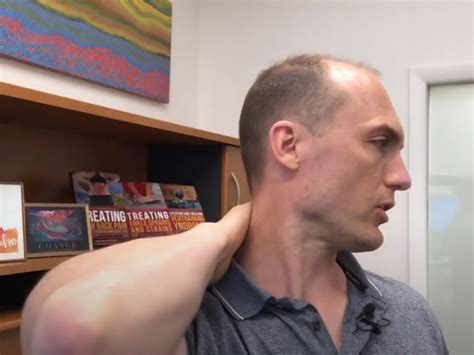Conquer Your Neck Kink Today: Relief and Prevention Strategies
A stiff neck, or neck kink, is a frustratingly common experience. That sharp pain, limited range of motion, and persistent discomfort can significantly impact your daily life. This comprehensive guide will explore the causes of neck kinks, effective relief methods, and preventative strategies to help you conquer your neck pain and maintain a healthy neck.
What Causes a Neck Kink?
Understanding the root cause of your neck kink is crucial for effective treatment. Several factors can contribute to this debilitating condition:
- Poor Posture: Slouching, hunching over computers, and prolonged periods of looking down at phones are major culprits. These postures strain neck muscles and vertebrae, leading to stiffness and pain.
- Muscle Strain or Sprain: Sudden movements, awkward sleeping positions, or strenuous activities can strain or sprain the neck muscles, resulting in a painful kink.
- Whiplash: This injury, often caused by car accidents, involves a sudden forceful back-and-forth movement of the head and neck, causing significant damage to muscles and ligaments.
- Stress: Chronic stress can cause muscle tension throughout the body, including the neck, leading to stiffness and pain.
- Degenerative Conditions: Conditions like arthritis can cause inflammation and degeneration in the neck joints, leading to chronic neck pain.
- Sleeping Position: Sleeping on your stomach or with your neck awkwardly positioned can contribute to morning neck kinks.
- Infections: In rare cases, infections or other medical conditions can cause neck pain.
How Can I Get Rid of My Neck Kink?
Fortunately, many effective strategies can provide relief from a neck kink. Here are some proven methods:
- Gentle Stretching: Carefully stretch your neck muscles to alleviate tension. Simple movements like tilting your head from side to side, gently rotating it, and chin tucks can provide relief. Avoid forceful movements.
- Heat and Ice Therapy: Applying heat packs or taking a warm shower can relax tense muscles, while ice packs can reduce inflammation and pain. Alternate between heat and ice for optimal results.
- Over-the-Counter Pain Relief: Nonsteroidal anti-inflammatory drugs (NSAIDs) like ibuprofen or naproxen can help reduce pain and inflammation. Always follow the recommended dosage.
- Massage Therapy: A professional massage can help relax tense muscles and improve blood flow to the affected area. Self-massage can also be beneficial, focusing on gentle pressure on the knotted or tense areas.
- Rest: Give your neck adequate rest to allow muscles to heal. Avoid activities that aggravate the pain.
- Proper Posture: Maintaining good posture throughout the day is crucial to prevent future neck kinks. Be mindful of your posture when sitting, standing, and sleeping.
What are the Home Remedies for a Stiff Neck?
Many effective home remedies can complement professional treatments:
- Epsom Salt Baths: The magnesium in Epsom salts can help relax muscles and reduce inflammation.
- Essential Oils: Applying diluted essential oils like lavender or peppermint to the neck area can provide soothing relief.
- Warm Compresses: Applying a warm, damp towel to the neck can ease muscle tension.
How Long Does a Neck Kink Last?
The duration of a neck kink varies depending on the cause and severity. Minor kinks may resolve within a few days with self-care measures. More severe kinks or those resulting from injuries may require longer treatment and could last for several weeks or even months. If your pain persists or worsens, consult a healthcare professional.
When Should I See a Doctor About My Neck Kink?
It's important to seek medical attention if your neck kink:
- Is accompanied by severe pain, numbness, or weakness.
- Is accompanied by fever or other signs of infection.
- Doesn't improve after a week of home treatment.
- Is caused by a traumatic injury.
- Is accompanied by headaches or dizziness.
How Can I Prevent Neck Kinks?
Preventing neck kinks involves adopting healthy habits and lifestyle changes:
- Maintain Good Posture: Be mindful of your posture throughout the day. Sit upright with your shoulders relaxed and your head aligned over your spine.
- Regular Exercise: Strengthening your neck and shoulder muscles can improve stability and reduce the risk of injury.
- Ergonomic Setup: Ensure your workspace is ergonomically designed to support good posture. Adjust your chair, monitor, and keyboard to minimize strain.
- Stress Management: Practice stress-reducing techniques like yoga, meditation, or deep breathing exercises.
- Sleep Posture: Use a supportive pillow that keeps your neck aligned with your spine. Avoid sleeping on your stomach.
By understanding the causes of neck kinks and implementing the preventative and relief strategies discussed above, you can effectively manage your neck pain and enjoy a healthier, more comfortable life. Remember, consistent effort is key to conquering your neck kink and preventing future occurrences. If you have any concerns, always consult with a healthcare professional for personalized advice.

